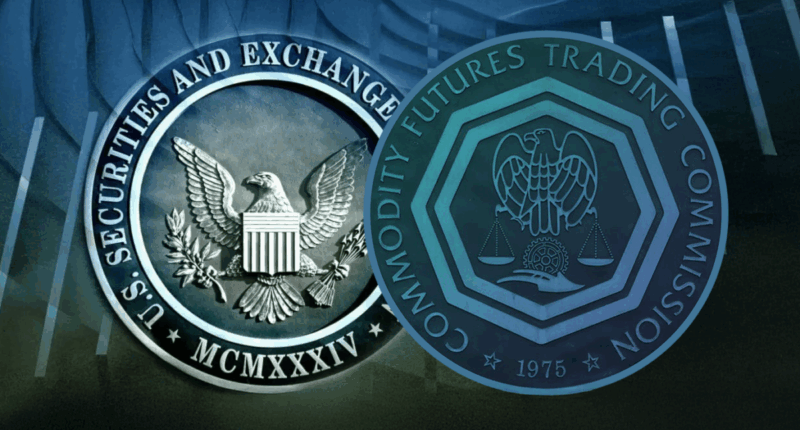Share this @internewscast.com
The Securities and Exchange Commission (SEC) and the Commodity Futures Trading Commission (CFTC) are collaborating to enhance oversight of digital assets in the U.S. This partnership aims to facilitate the growth of spot markets within the country, allowing exchanges to offer leveraged crypto products within a framework that emphasizes compliance and strong supervision.
This cooperative effort signifies a strategic shift under the current administration to foster innovation in the cryptocurrency sector while ensuring investor protection and market integrity. By aligning their regulatory scopes, the agencies intend to resolve longstanding ambiguities that have impeded the development of platforms for trading digital assets such as Bitcoin and Ethereum.
Key elements of this joint effort include:
- Clear Jurisdictional Guidelines: The SEC, which oversees securities including certain crypto tokens classified as investment contracts, and the CFTC, which regulates commodities and derivatives such as futures on virtual currencies, are working to delineate boundaries. This will help prevent overlaps and gaps in regulation, ensuring that spot markets—where assets are traded for immediate delivery—operate smoothly.
- Support for Leveraged Products: Exchanges will be allowed to list leveraged digital products on registered platforms, provided they adhere to federal rules. This includes requirements for margin trading and financing, which must occur on designated contract markets (DCMs) to comply with the Commodity Exchange Act.
- Investor Protection and Compliance Focus: Both agencies emphasize the need for strong anti-fraud measures, anti-money laundering protocols, and transparency. The CFTC’s authority over commodity spot markets for manipulation and fraud will complement the SEC’s investor protection mandate, creating a more unified regulatory environment.
The initiative builds on recent progress, including the SEC’s “Project Crypto,” introduced by Chair Paul Atkins, which seeks to modernize securities regulations and incorporate blockchain technology into the U.S. capital markets. Concurrently, the CFTC’s “crypto sprint,” under the leadership of Acting Chair Caroline Pham, is advancing the implementation of recommendations from the President’s Working Group on Digital Asset Markets.
Industry experts perceive this move as a positive development for the cryptocurrency ecosystem, with the potential to attract more institutional involvement and bolster U.S. leadership in digital finance. Nonetheless, stakeholders are invited to share insights on potential ramifications, particularly regarding the trading of non-security assets linked to investment contracts.
As the regulatory landscape evolves, the SEC-CFTC collaboration could signify a pivotal moment, striking a balance between innovation and oversight to enhance confidence in U.S. spot crypto markets.

















